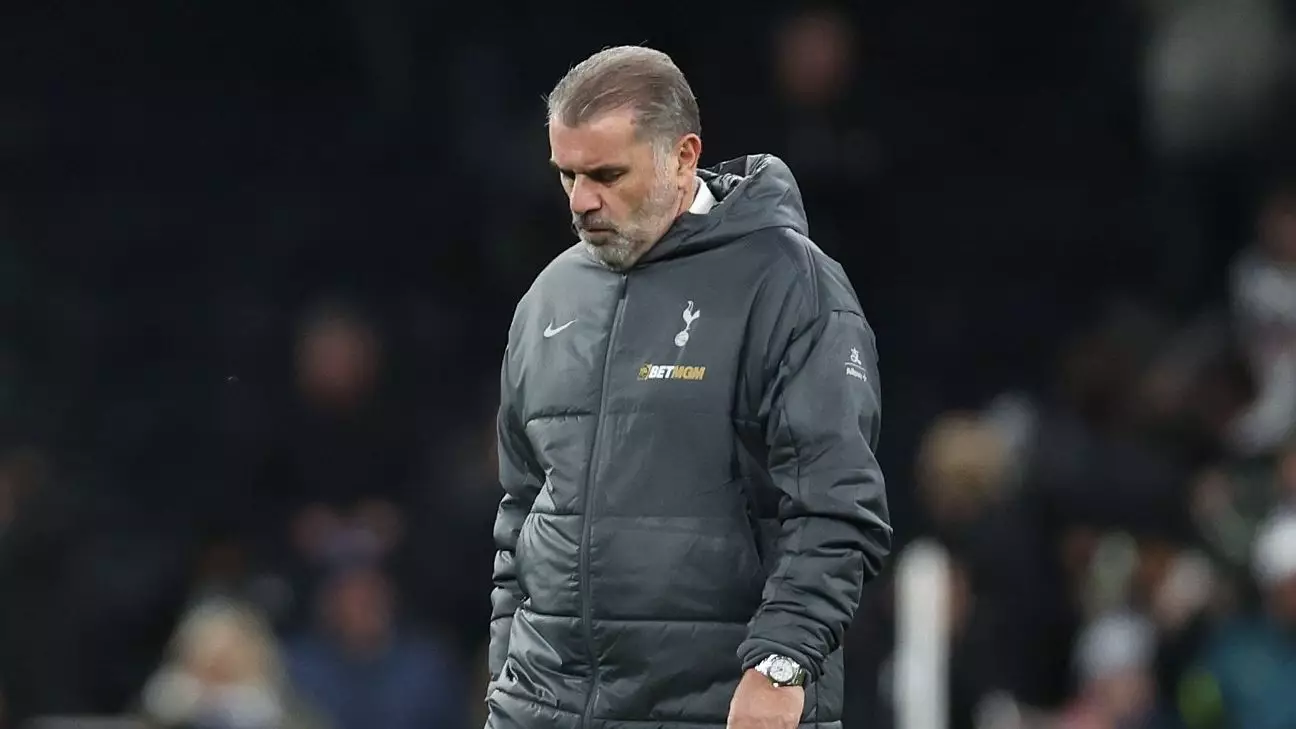In the competitive arena of the Premier League, every match holds the potential for storytelling, and the recent clash between Tottenham Hotspur and Liverpool was a dramatic chapter laden with twists. Ange Postecoglou, the Spurs’ manager, faced staunch criticism and scrutiny following a disappointing home defeat that concluded with a staggering scoreline of 6-3. Yet, the Australian manager’s commitment to an aggressive attacking style remains unshaken, igniting a debate about tactical approaches in professional football.
Following the fixture, Postecoglou’s comments hinted at a growing frustration with media inquiries regarding his team’s defensive frailties. The loss, coming at the hands of a relentless Liverpool side, highlighted Tottenham’s vulnerability at the back. Conceding six goals at home is a stark reminder of the challenges that come with playing an expansive brand of football. Yet, as the Spurs boss pointed out, injuries have ravaged the squad. Key players—including goalkeeper Guglielmo Vicario and defenders Micky van de Ven, Cristian Romero, and Ben Davies—are sidelined, raising critical questions regarding the team’s structural integrity.
Postecoglou’s unyielding belief in his attacking philosophy, despite such heavy losses, speaks volumes about his coaching vision. The choice to prioritize offensive play over defensive solidity can be a double-edged sword – it may yield thrilling football but also exposes glaring vulnerabilities. His resolve to continue with this strategy reflects a broader trend among managers who believe that long-term success is predicated on adhering to an identifiable style of play.
Tottenham’s recent form – 15 goals conceded in just six matches – has merited scrutiny that ranges from tactical adjustments to psychological impacts. The persistent inquiries into Postecoglou’s tactics after such an emphatic defeat showcase the tightrope walked by managers. In this instance, the manager stood firm, choosing to deflect responsibility for outcomes that are frequently influenced by factors outside immediate control. His decision to cease addressing such repetitive questions indicates a desire to refocus the conversation on positive growth rather than reactive measures driven by public opinion.
Moreover, the impact of injuries cannot be overstated. The absence of crucial players tends to ripple through a squad, affecting not only tactical setups but also player confidence and morale. The fact that Postecoglou has advocated for his tactical approach despite these challenges suggests a belief that adversity can, in fact, catalyze development. However, in the immediate aftermath of a defeat, such positions can appear idealistic and may not resonate with fans desperate for results.
Future Outlook: A Leap of Faith
As the season progresses, attention turns to whether Postecoglou will indeed hold fast to his approach or be forced into a reactive strategy. Should the team continue to struggle defensively, the pressure on the coaching staff may intensify, leading to potential tactical shifts that could compromise his original vision. Contrast this with the brighter side; should Tottenham adapt and find equilibrium within Postecoglou’s framework, the payoff could be profound. Football history offers numerous examples wherein teams have emerged stronger following periods of tribulation because the core philosophies were upheld in challenging times.
In essence, this narrative encompasses more than just one match or one season. It involves an exploration of identity, both for the coach and the club. A commitment to attack can symbolize ambition and entertainment, traits that fans adore. However, a balance must be struck, one that allows for defensive cohesion while still maintaining the vibrancy of an attacking ethos.
Cultivating a Culture of Resilience
The journey ahead for Spurs under Postecoglou will necessitate resilience. The notion that one can simply change tactical philosophy overnight, as he noted, belies the complexities of teamwork and player adaptation. Building success in football is often rooted in consistency coupled with a willingness to evolve within that framework.
Supporters and critics alike may demand immediate results and drastic changes, but true growth often stems from stability amid chaos. As Tottenham navigates the turbulent waters of the Premier League, the critical question remains: Will Postecoglou’s steadfast approach lead to salvation in the face of adversity, or will the mounting pressure compel a reevaluation of his tactics? Only time will tell if this gamble pays off, but for now, Postecoglou remains committed to his vision, ever hopeful that the storm will yield to brighter skies.

